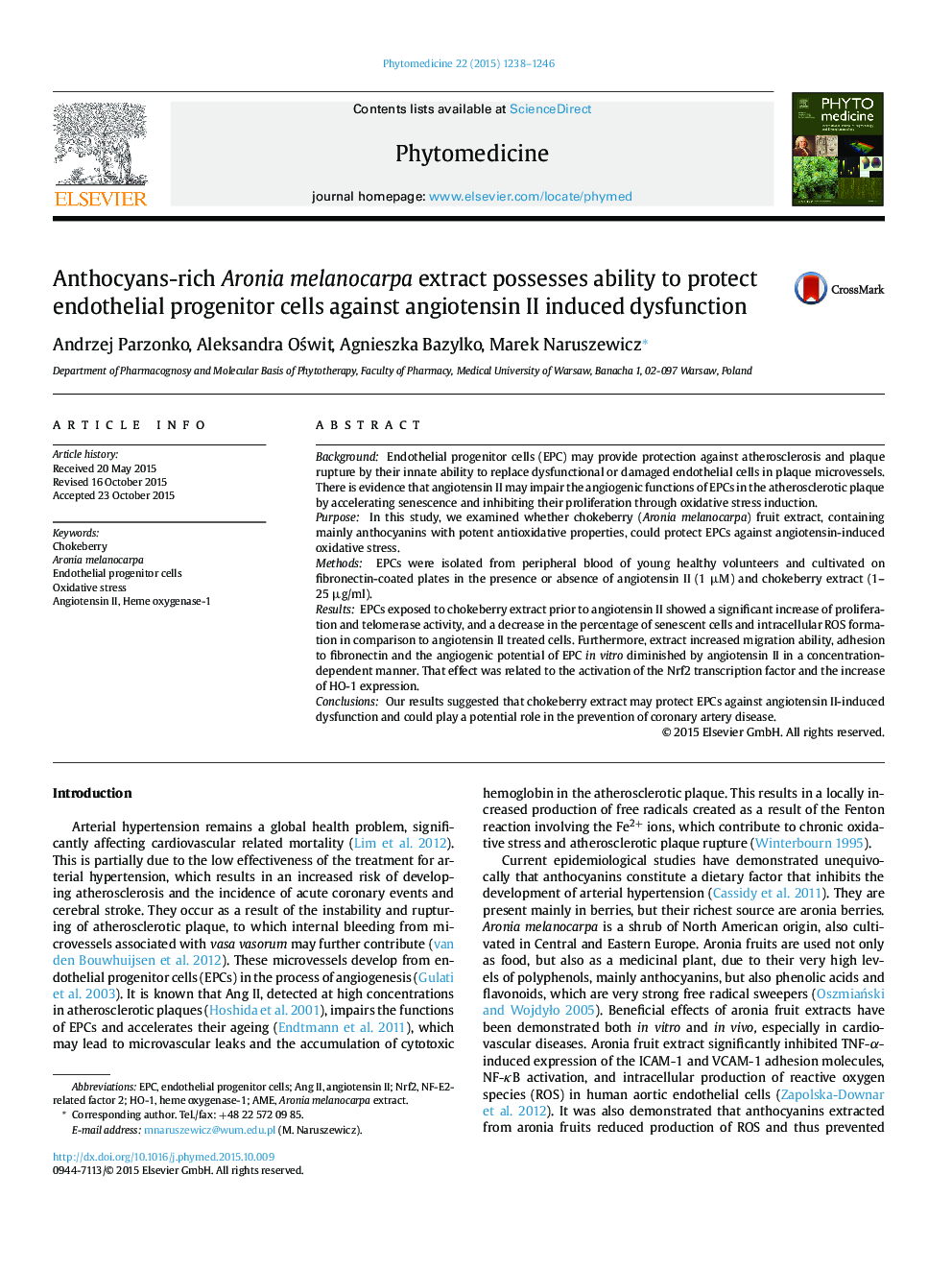| Article ID | Journal | Published Year | Pages | File Type |
|---|---|---|---|---|
| 2496296 | Phytomedicine | 2015 | 9 Pages |
BackgroundEndothelial progenitor cells (EPC) may provide protection against atherosclerosis and plaque rupture by their innate ability to replace dysfunctional or damaged endothelial cells in plaque microvessels. There is evidence that angiotensin II may impair the angiogenic functions of EPCs in the atherosclerotic plaque by accelerating senescence and inhibiting their proliferation through oxidative stress induction.PurposeIn this study, we examined whether chokeberry (Aronia melanocarpa) fruit extract, containing mainly anthocyanins with potent antioxidative properties, could protect EPCs against angiotensin-induced oxidative stress.MethodsEPCs were isolated from peripheral blood of young healthy volunteers and cultivated on fibronectin-coated plates in the presence or absence of angiotensin II (1 µM) and chokeberry extract (1–25 µg/ml).ResultsEPCs exposed to chokeberry extract prior to angiotensin II showed a significant increase of proliferation and telomerase activity, and a decrease in the percentage of senescent cells and intracellular ROS formation in comparison to angiotensin II treated cells. Furthermore, extract increased migration ability, adhesion to fibronectin and the angiogenic potential of EPC in vitro diminished by angiotensin II in a concentration-dependent manner. That effect was related to the activation of the Nrf2 transcription factor and the increase of HO-1 expression.ConclusionsOur results suggested that chokeberry extract may protect EPCs against angiotensin II-induced dysfunction and could play a potential role in the prevention of coronary artery disease.
Graphical abstract Figure optionsDownload full-size imageDownload high-quality image (205 K)Download as PowerPoint slide
